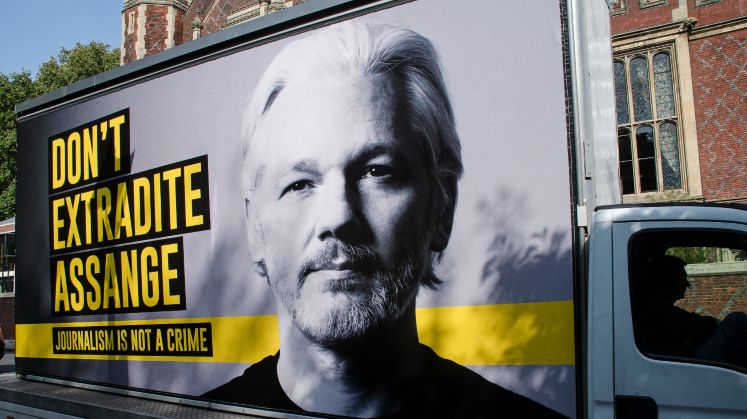 In recent years many commentators have argued that social media will transform the processes through which social movements form and take action. Jamie Bartlett argues that recent evidence suggests this long heralded shift is starting to take place within the UK, echoing changes taking place elsewhere in Europe.
In recent years many commentators have argued that social media will transform the processes through which social movements form and take action. Jamie Bartlett argues that recent evidence suggests this long heralded shift is starting to take place within the UK, echoing changes taking place elsewhere in Europe.
Analysts – academics among them of course – have long argued that mass communication through the web would facilitate collective action by bringing groups together around single issues, lowering barriers to entry and thereby fundamentally changing the nature of political movements.
It perhaps took slighlty longer than some predicted – but I think it might have arrived. Recent survey results from the Oxford Internet Institute show a marked increase in online political activism. In 2011, for the first time, people were more likely to contact a politician or a political party online (8 per cent) than offline (7 per cent). In 2011, two new exclusively online political activities also appeared: 9 per cent of people sent an electronic message supporting a political cause, and the same number commented on politics in social media.
It is social media that it at the forefront. The size, diversity and dynamism of social media platforms allow people to connect and form social movements outside the existing political channels far more quickly and easily than ever before. New social movements are emerging using social media, and challenging existing parties in a way unthinkable a decade ago. Beppe Grillo’s Movimento 5 Stelle in Italy used social media to coordinate and organise so smartly it helped him gain over 25 per cent of the national vote – without a single interview with Italian broadcast or print media, confounding PR advisers across the continent. Closer to home Goerge Galloway attributes his success in the Bradford by-election to Twitter. The Grillo tsunami (his words, not mine) might yet recede, but others will be sure to follow.
The larger parties take note. Today I released a new report “Virtually Members” looking at the Facebook and Twitter support for the main UK political parties. Using a fairly simple script connected to the Twitter Application Programming Interface, we measured the unique number of users that follow at least one MPs belonging to a party – excluding any user that follows MPs from more than one party – and found there are now significantly more Twitter followers for both the Conservatives (430,893) and Labour (316,237) than there are formal party members (under 200,000 for each). Even when removing the Prime Minister and Leader of the Labour Party Ed Miliband, they remain more numerous. Similarly, in respect of Facebook, there are significantly more Facebook likes for the Conservative and Liberal Democrat Party than formal party members (although significantly fewer for the Labour party).
Quite how far this virtual membership is now a reliable replacement for the current political party membership system – for raising funds, volunteering, campaigning, attending events – remains an open question. That said, these virtual members are a younger demographic, and our research also finds that most Twitter followers are ‘loyal’ – meaning they only follow someone from one party (excelt the Liberal Democrats, who are a little more unfaithful). The lesson from Grillo is that these people are willing to mobilise, to vote, and to volunteers: and any party that can turn a sizeable online precense to offline activity can really make a different. The parties need to get used to this new type of membership. Virtual support is transforming what it means to belong to a party, from a formal hierarchical model to a more networked, ephemeral, conditional support (not to mention free). After all, looking at current trends, it might soon be all they have.
Note: This article gives the views of the author, and not the position of the British Politics and Policy blog, nor of the London School of Economics. Please read our comments policy before posting.
Jamie Bartlett is the Head of the Violence and Extremism Programme and the Centre for the Analysis of Social Media. His primary research interests are: terrorism, extremism and social media analysis, including the use of social media by political movements and law enforcement agencies.







Interesting article but it falls into the trap of being technoogically deterministic. Technology that fails to solve a social problem fails. The two primary examples above – Galloway and Grillo – unboubtedly made use of social media and other online tools. But… the success of eeither of these can’t be attributed to social media alone. It was a tool to connect the disaffected – in one case young muslims and in the other a broad range of thoroughly fed up and distrusting Italian voters. To argue that social media led to any of this is stretching the bow far to far to be justifiable.
Yes, social media and other internet technologies help. They lower the barriers to motivation and mass engaement, they support the building of critical weak ties and also enhance the cementing of strong ties. But of themselves they do nothing. If the public were satisified with the status quo Grillo and Galloway would change nothing (actually, the Galloway argument is weak anyway, he might claim it was Twitter what won it but evidence locally suggests otherwise).
This article makes some good points and raises some important questions, but it does overstate the importance of social media at the expense of wider social connectedness, the broader shift from ideology to issues and widescale political disaffection.